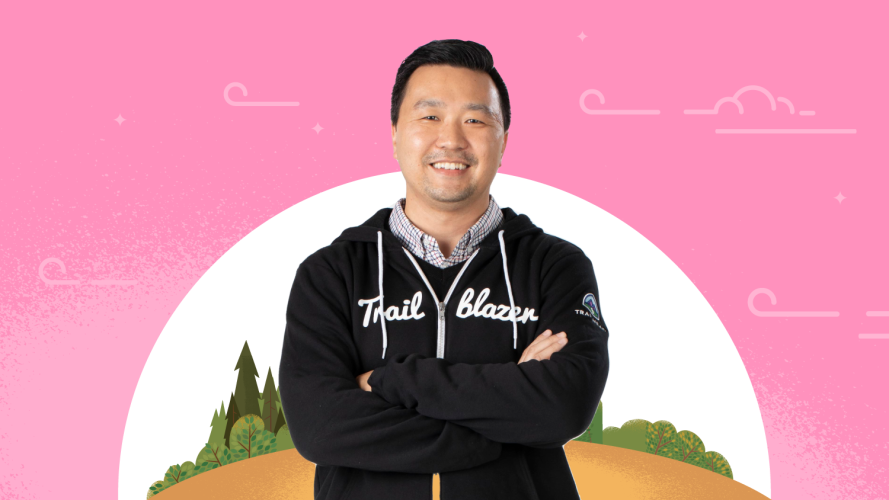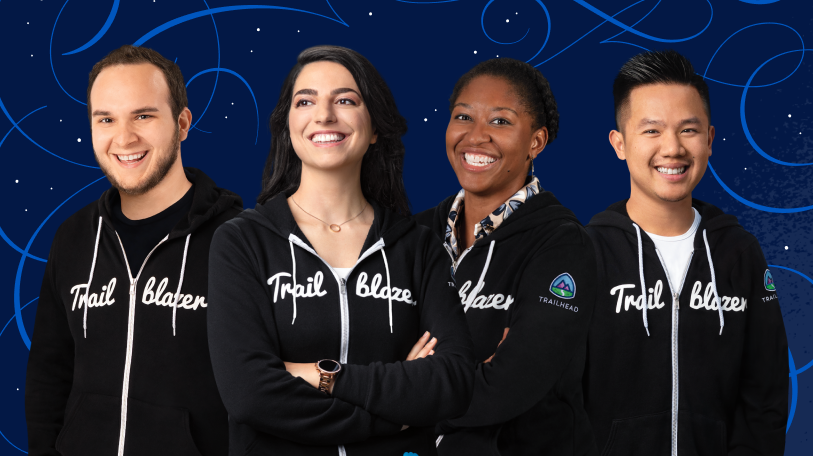3 Ways Generative AI Will Help Marketers Connect With Customers
3 min read



If you’re diligently applying for jobs, but you’re not hearing back from employers, you’re more than likely hitting the Trust Gap. The Trust Gap is what some call the lack of confidence an employer has in an applicant’s ability to do the job. This lack of trust is why employers ask for relevant experience. They prefer explicit proof that you have already successfully done what you say you can do. So how do you bridge this gap and build your Salesforce work experience? Here are three tips to set you up for success on your Salesforce career path.
To start bridging the Trust Gap with employers, you can create your own Salesforce work experience with this simple formula: Find a problem in your life + solve the problem with Salesforce = Success. This formula mimics what you’d do in a Salesforce job where you would find a business pain and relieve the pain with Salesforce.
Begin by thinking about any problems or projects you can use Salesforce to solve:
For example, if you used Salesforce reports and dashboards to track your budget, share which skills you built or boosted during this process and how this relates to the role’s responsibilities. Did you use data to help you make more informed decisions about budget allocations? Did you determine the level of access for your family members to view the reports you created? Give these details when you tell your story in your interview to make your experience relevant to the position. Using Salesforce in creative and unconventional ways is a great way to build your hands-on Salesforce work experience.
Free learning means the freedom to take control of your future.

Besides showing your proficiency on the technical side, you should also think about the nontechnical ways to stand out and build your professional brand. A great way to do this is to think like a hiring manager. Use these insights to better understand what hiring managers are looking for on your resume:
It doesn’t matter what your background is—there are always transferable skills to highlight on your resume and in your interviews. Fellow Trailblazer Jonathan Fox has written wonderfully about how he identified and promoted his transferrable military skills when he began his Salesforce career. He has a great point about taking a moment to think about and list all the skills you have developed throughout your career and life. Then you want to map these skills to the skills your prospective employer is looking for. Sometimes this might take some creativity, but you can find so many transferable skills such as project management, data analysis, attention to detail, etc. Don’t sell yourself, and your skills, short. Think about what Salesforce work experience
And never forget your people skills. People skills are a big part of emotional intelligence, and emotionally intelligent employees are in high demand. Great candidates understand that when you start out, you focus 90% on technology and 10% on people. But as your career progresses, you often need to focus 90% on the people and 10% on the technology, and it won’t hurt to show that your skills reflect the ability to handle that change. So, don’t forget to highlight the transferrable people skills that you may have acquired during your career, whether they be from customer service, retail, the hospitality industry, or somewhere else.
Build your own relevant experience, demonstrate what you have learned with certifications, Super Sets, superbadges, and Trailhead badges, share your unique personality, and map your transferable skills to the job at hand. When it seems like everyone around you has more technical expertise, never forget that your future employer needs a person on their team. Someone who knows how to connect, compromise, and move forward with other stakeholders. Also, remember that as your technical expertise and career progress, it’s key to focus more on the people than the technology. Because, at the end of the day, Salesforce is a tool that people use. So to make a big(ger) impact, remember that your transferable people skills are a Salesforce skill—in fact, you can even learn more about these skills in the Develop Emotional Intelligence trail.
Show your employer you’re the perfect mix of both, and you’ve got a winning recipe. So share your story and relevant skills to let them know you’ve got what it takes to do the job.
Here are your calls to action:

3 min read

6 min read
Discover expert insights to help you develop your career, connect with Trailblazers, learn Salesforce, and earn certifications. Explore practical how-to guidance, authentic peer perspectives, and inspiring Trailblazer stories.





Get the latest articles in your inbox.


